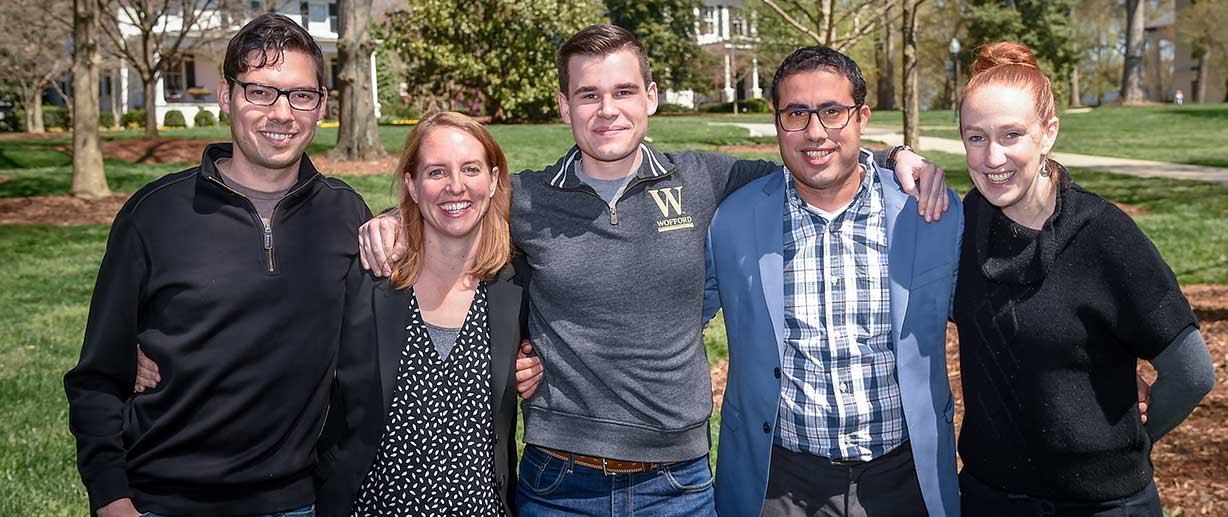SPARTANBURG, S.C. – Conner Chestnut did not even know that Middle Eastern and North African Studies was an option when he enrolled at Wofford College. Even when the sophomore registered for “Introduction to Islam and Arabic,” he had no intention of pursuing study in the field beyond the course. Then he fell in love with the region’s long, ancient history, language and culture.
Now the intercultural studies major from Galivants Ferry, S.C., will spend a year studying abroad in Amman, Jordan, as the recipient of a cultural immersion scholarship.
“I’m excited to experience life as it is in the Middle East and be able to share in their history and culture as a student willing to learn,” says Chestnut. “Staying with what you are comfortable with can only get you so far. Students must challenge themselves and get involved with a lifestyle different than theirs.”
Chestnut chose Amman because of its location in the heart of the Middle East. He will study the Arabic language and the politics of the region.
“This scholarship is a dream come true — going to Petra, seeing the Roman ruins, visiting the Dead Sea and taking in all the country has to offer will be an unforgettable experience to say the least,” Chestnut says. “It will take me on a far different track than I ever imagined, and, for me, it’s an adventure I cannot wait to take.”
When he was selected for the scholarship, administered through the Wofford Office of International Programs, Chestnut immediately shared the good news with his MENA program advisers: Dr. Courtney Dorroll, assistant professor of religion; Dr. Phillip Dorroll, assistant professor of religion; Dr. Youness Mountaki, assistant professor of Arabic; and Dr. Helen Dixon, assistant professor of religion.
According to Courtney Dorroll, Wofford’s MENA program draws on courses in art history, English, government, history, modern languages and religion to encourage students to learn about the history, culture, politics and languages of the Middle East and North Africa. It requires two classes and four electives and culminates in an independent capstone project designed to integrate learning from diverse areas of study.
“Any major can participate in this program because it’s by its very nature interdisciplinary,” she says. Dorroll adds that she’s excited about what Chestnut’s experience will mean for him and the MENA program. “Cultural integration allows you to experience a culture by being in that context, living your life among its inhabitants, eating the regional cuisine, learning cultural norms and taboos, speaking the language on a daily basis. It allows our Wofford students to experience a different way of life by which they can better understand and appreciate the complexities of another culture, religion, language — and by doing so — many Wofford students gain a better understanding of themselves, their own culture, religion and language.”
